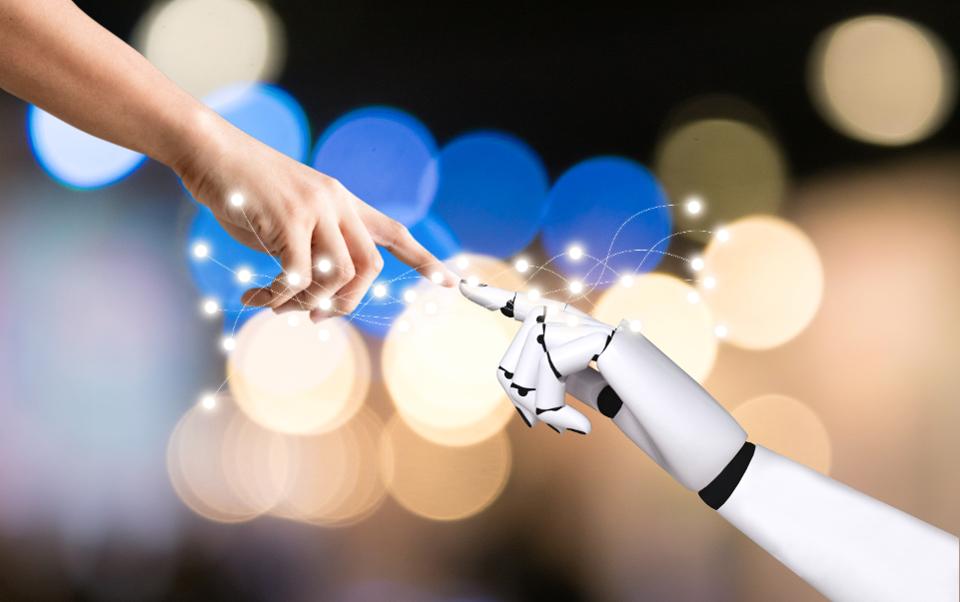I’ve been thinking a lot recently about the many ways in which artificial intelligence may change our lives.
copyright by www.forbes.com
 One of the biggest impacts may be on jobs, not only on the nature of work itself, but on the availability of work. Some crystal ball gazers are predicting that AI (working in concert with its older sibling, automation) will trigger massive job losses ; others see AI producing a net gain in employment . Both views can be supported both logically and empirically; but they both can’t be right.
One of the biggest impacts may be on jobs, not only on the nature of work itself, but on the availability of work. Some crystal ball gazers are predicting that AI (working in concert with its older sibling, automation) will trigger massive job losses ; others see AI producing a net gain in employment . Both views can be supported both logically and empirically; but they both can’t be right.
As Andy Kessler put it in a June 17 Wall Street Journal column, “The future happens, just not the way most people think.” Kessler then walked readers through a shopping list of past predictions that turned out to be way off the mark: “megamistakes,” he called them. One group of AI prognosticators is heading in that direction; we just don’t know which one.
So what do we know about AI? We know that AI algorithms—which are intended to trigger various responses by workers or machines—are created by humans, and are therefore subject to human error, bias, and a host of other potential flaws the techies would rather not talk about. AI is no more infallible than you or I.
Predictions about AI are therefore equally suspect. We don’t know what we don’t know.
What we do know, however, with some degree of certainty, is that AI’s smart technologies likely will impact the labor market, as all new labor-substitution technologies do, affecting some occupations more than others. The Brookings Institution suggests that the occupations most at risk include those involved in food preparation and food service, production operations, office and administrative support, farming, fishing and forestry, transportation and material moving, and construction and mining.
Frontier Economics , in a September 2018 analysis prepared for the Royal Society and British Academy, points more generically to “jobs typically performed by workers with relatively low levels of formal education” as most at risk.
A BCG team led by Andrea Gallego, Matt Krentz, Miki Tsusaka and Frances Brooks Taplett, in another recent report, “How AI Could Help—or Hinder—Women in the Workforce”, suggests the occupations most at risk are those stereotypically held by women: bank tellers, clerical and administrative positions, teachers. Brookings, on the other hand, suggests that jobs typically performed by men, truck driving and working on factory assembly lines, for example, are slightly more at risk.
Thank you for reading this post, don't forget to subscribe to our AI NAVIGATOR!
Don’t let the jumble of conflicting analyses and opinions confuse you. The important point—whether you’re looking at the BCG report, the Brookings study, or the Royal Society/British Academy analysis—is that millions of today’s jobs, thanks to AI and other technologies, won’t exist in the future, or won’t exist as we know them today.[…]
read more – copyright by www.forbes.com


I’ve been thinking a lot recently about the many ways in which artificial intelligence may change our lives.
copyright by www.forbes.com
As Andy Kessler put it in a June 17 Wall Street Journal column, “The future happens, just not the way most people think.” Kessler then walked readers through a shopping list of past predictions that turned out to be way off the mark: “megamistakes,” he called them. One group of AI prognosticators is heading in that direction; we just don’t know which one.
So what do we know about AI? We know that AI algorithms—which are intended to trigger various responses by workers or machines—are created by humans, and are therefore subject to human error, bias, and a host of other potential flaws the techies would rather not talk about. AI is no more infallible than you or I.
Predictions about AI are therefore equally suspect. We don’t know what we don’t know.
What we do know, however, with some degree of certainty, is that AI’s smart technologies likely will impact the labor market, as all new labor-substitution technologies do, affecting some occupations more than others. The Brookings Institution suggests that the occupations most at risk include those involved in food preparation and food service, production operations, office and administrative support, farming, fishing and forestry, transportation and material moving, and construction and mining.
Frontier Economics , in a September 2018 analysis prepared for the Royal Society and British Academy, points more generically to “jobs typically performed by workers with relatively low levels of formal education” as most at risk.
A BCG team led by Andrea Gallego, Matt Krentz, Miki Tsusaka and Frances Brooks Taplett, in another recent report, “How AI Could Help—or Hinder—Women in the Workforce”, suggests the occupations most at risk are those stereotypically held by women: bank tellers, clerical and administrative positions, teachers. Brookings, on the other hand, suggests that jobs typically performed by men, truck driving and working on factory assembly lines, for example, are slightly more at risk.
Thank you for reading this post, don't forget to subscribe to our AI NAVIGATOR!
Don’t let the jumble of conflicting analyses and opinions confuse you. The important point—whether you’re looking at the BCG report, the Brookings study, or the Royal Society/British Academy analysis—is that millions of today’s jobs, thanks to AI and other technologies, won’t exist in the future, or won’t exist as we know them today.[…]
read more – copyright by www.forbes.com
Share this: